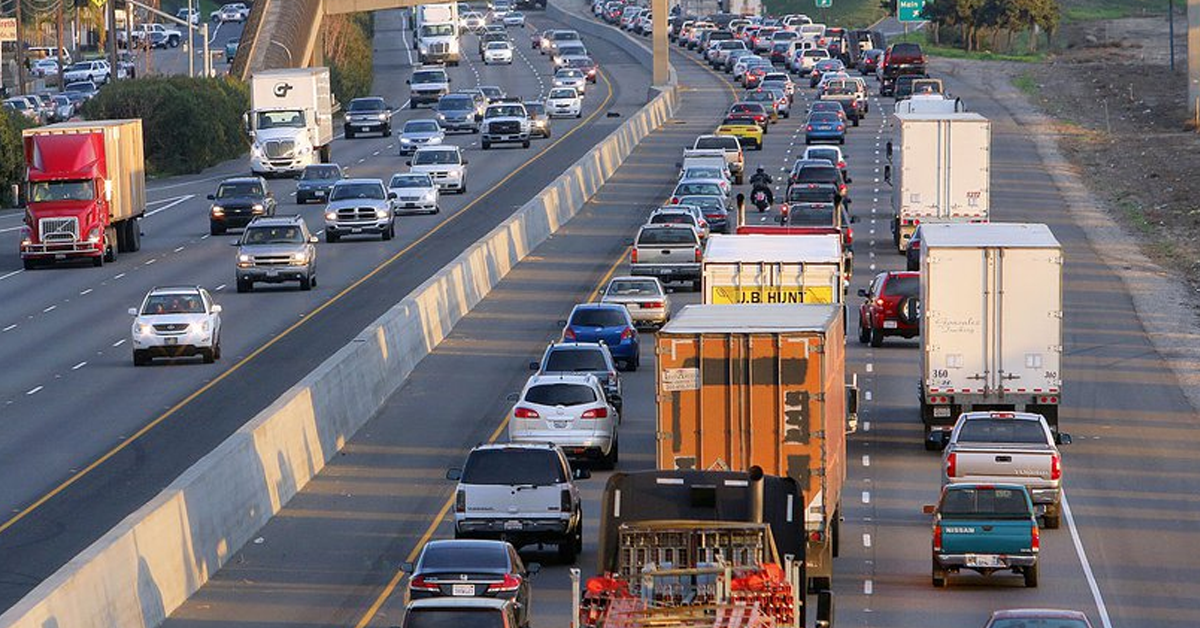The Natural Resources Agency, California EPA, and California Department of Food and Agriculture want the public’s input on how best to manage and deal with an uncertain water supply in the future.
It seems every new administration in Sacramento must deal with water issues in California that never seem to get fixed.
[mnky_ads id=”8865″]Under the last administration, water rationing, increasing flows to the ocean, higher rates to customers, multi-billion dollar bonds, increased regulations, and a declaration of the human right to water obviously didn’t do the trick.
California has consistently been moving water from human use to environmental use for decades by transferring it to the ocean. Millions of acre-feet of water are diverted away from cities and farms on an annual basis.
This has increased over the years, not decreased.
California voters have approved more than $25 billion in water funding via propositions since 1970, after being told they were needed to fix California’s water issues.
These are the same issues state agencies are attempting to fix today by seeking “public input.”
They are seeking input from the public, water agencies, universities, and other community groups.
Let’s assume this time around is different. Let’s assume this administration and accompanying bureaucracy have opened their minds and are truthfully looking to solve the problems the most burdensome regulations and most stringent environmental laws have failed to do.
They would like input to secure safe and affordable drinking water to certain communities.
It is possible they sought this information prior to June when legislative leaders struck a deal to fix this issue. [mnky_ads id=”8870″]
Instead of approving Governor Newsom’s water tax, they agreed to tap $100 million annually from the cap-and-trade “Greenhouse Gas Reduction Fund” and $30 million annually from the state’s General Fund.
Taxpayers should watch to see if this “problem” remains to be unsolved.
The state also wants to know what they can do to help water agencies develop and store more water for urban and agriculture uses, what they can do to further conservation, what they can do to protect fish and wildlife, and what they can do to prepare for economic effects from the Sustainable Groundwater Management Act (SGMA).
In a state that feels climate change is the ultimate threat to its citizens – driving reduced snowpack, greater fires, and longer droughts – it would appear plainly obvious we need more water.
As good as keeping buckets on hand to catch your shower or rain-gutter water sounds, I think it makes sense to build more major above-ground storage. Along with the forecasting of catastrophic events of climate change, they also tell us our population will increase to over 44 million by 2030.
It’s safe to say we don’t have enough buckets for that!
The state wants to know what laws and policies no longer serve public values. Laws and policies that have caused the decline in value of life for people in the Central Valley include but are not limited to both state and federal actions.
They include the Endangered, CEQA, the Central Valley Project Improvement Act, 2008 & 2009 Biological Opinions, Bay-Delta Plans that confiscate “unimpaired flows”, D-1641, Temperature Control policy, and water rationing to 55 gallons per day, then 50 gallons per day per person, among others.
Lawsuits by special interest groups who are radical in their efforts and desires should be met with force instead of weakness. [mnky_ads id=”8870″]
Better manage our current infrastructure with fairness in mind. With the removal or suspension of several key, overbearing environmental restrictions in different areas of the state, we could redefine what is “beneficial” to cities, farms, and the environment.
We currently have a system in place to recharge underground aquifers in the Central Valley. It is called Agriculture. But the state should stand down and let farmers do what they do best. They have been successful in feeding billions of people.
Academia should have no benefit or allegiance to political activists or government bureaucrats. Our universities should get back to writing, reading, math, and history and leave farming to the families who have learned how to grow food, fiber, and dairy for generations with their own blood, sweat, and tears.
Water should be made available when and where farmers are able to use it to recharge aquifers and grow food. Those sound like “beneficial uses” for everyone.
Instead of refusing to use updated science because of political ideology and monetarily based loyalty to special interest groups, the state should stop referring to the drought years of 2014-2015 in their collective analysis for the entire future of California water.
Regardless of politics and agendas, new science is formed because new data is formed and should be practiced.
We have an example to see, study, and learn from. It is called the Central Valley Project. It includes infrastructure built decades ago that remains the envy of the world today. It was built for many reasons, one of which was to secure the sustainability of aquifers. Appreciating and using a fair approach of all water uses which includes a multibillion dollar industry that is vital to the national security of the United States.
Lastly, the state should remove itself from a nonstop game of picking winners and losers. Choice and competition, ultimately, should be the determinant of winners and losers.
The face of the family farmer has been extorted on matters involving natural resources, land, inputs, and labor. Dishonest representation has led to less diversification, not more.
Using the face of the family farmer to represent multi-national corporations who have the ability to gain power and control to formulate policy that drives family farming out of business, is dishonest and dangerous.
When Ag real estate agents are running around with blank checks waiting for the next family farming business to put up a “For Sale” sign on their property, we have a problem. It is leading to less choices, not more. It is leading to expensive food, not cheap food. It is leading to more foreign grown food, not American grown food. It is harmful to real family farming operations and is increasing risk to everyone in this country.
The state can do the most by doing the least.
Experts do not sit in meetings in Sacramento, Bay-Area Boardrooms, or University classrooms. The true experts are up before the sun rises, get their hands dirty, and drive pickups. [mnky_ads id=”8874″]











